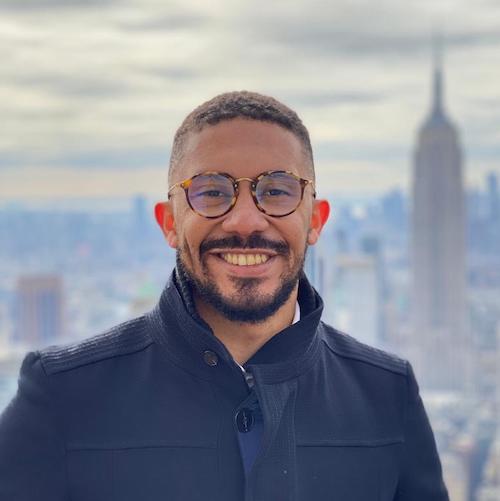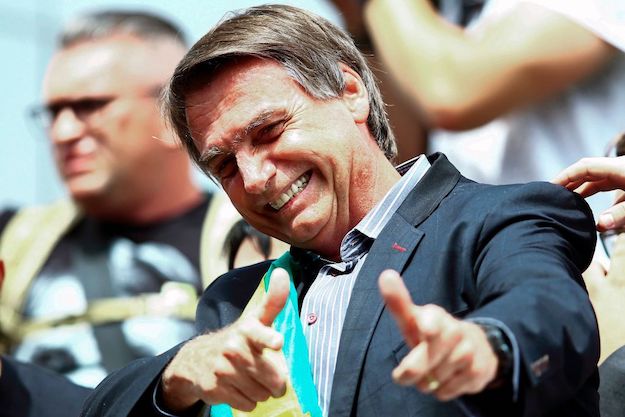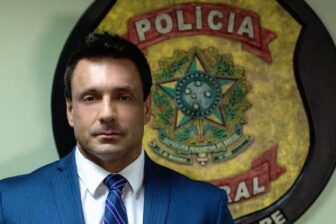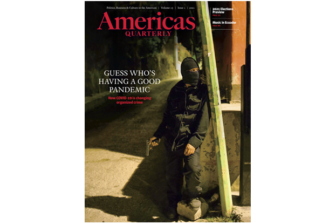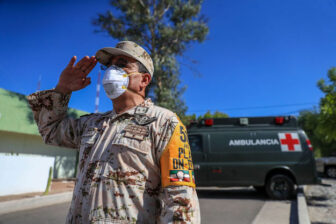SÃO PAULO – It’s no surprise that a president whose campaign symbol was making a gun gesture with his hands would turn out to be a pro-gun leader once in office. Even so, as Brazil struggles during a pandemic that has killed more than 240,000 people, and as homicides increased by 5% in 2020, the timing for new pro-gun rules could hardly be worse.
On Feb. 12, President Jair Bolsonaro challenged the boundaries of legality, to put it mildly, by issuing four new pro-gun presidential decrees. The orders, effective immediately, curb the Federal Police and Army’s power to regulate guns and make it easier for Brazilians to acquire them. The changes include upping the limit on the number of weapons citizens can purchase, from four to six. Members of the judiciary, prosecutors and the federal, state or district criminal police, plus prison officers and guards, are now able to buy eight. The new decrees also exclude specific items, such as heavy projectiles, from the list of products the army regulates.
Legally, what Bolsonaro is doing is eroding the 2003 Statute of Disarmament law, which permits the sale of guns but imposes strict limits on who can purchase and carry firearms. For the most part, anyone outside of law enforcement is prohibited from owning firearms. Bolsonaro’s actions are an example of what Brazilians call “gnawing at the edges.” That is, he has left the 2003 law in place — probably because he isn’t sure he can overturn it in Congress — while undermining the law with presidential decrees. This is a clear case of what legal experts have called autocratic legalism, a law-based way of promoting the erosion of rule of law itself.
In political terms, the move may help Bolsonaro shore up his political base ahead of the 2022 presidential election, at a time when he is facing strong criticism for his disastrous handling of the pandemic and the slow rollout of vaccines. There are more than 5.6 million police and military personnel in Brazil, including both active-duty and retired members — a large voting bloc equivalent to about 5% of the valid votes cast in the 2018 election. The junior ranks of the security forces, in particular, are among the president’s most enthusiastic and loyal supporters. The Feb. 1 election of Arthur Lira and Rodrigo Pacheco, both aligned with Bolsonaro, as head of the House of Deputies and Senate has created an environment where the president believes now is the time to advance his agenda.
The irony is that, by making more guns available and blurring the distinction between legal and illegal markets, Bolsonaro’s actions will primarily benefit organized crime and the paramilitary groups known as milicias – and thus make Brazil less safe for everyone, including law enforcement.
Indeed, an arms buildup was underway well before the recent decrees: In 2020 alone, Bolsonaro’s second year as president, the federal police issued nearly 180,000 new gun licenses, a 91% increase compared to 2019 and the highest number since 2009. Licenses granted to hunters and collectors experienced a 68% increase, according to official data obtained by the NGO Sou da Paz Institute. These increases stemmed from Bolsonaro’s previous decrees facilitating access to guns, including those that made it easier for hunters and shooters to carry guns in the open.
After a sharp decline of about 33% in Brazil’s murder rate between 2017 and 2019, according to data compiled by the Igarapé Institute, Brazil is now experiencing a renewed increase in homicides. In 2020, Brazil had 43,892 violent deaths, against 41,730 in 2019 (when around 70% of homicides were committed using firearms). While taking into consideration that homicide is always a multi-factor phenomenon, it is a consensus among experts that part of the reason for the rebound is due to renewed territorial disputes between organized crime and militias — fueled in part by firearms that travel from legal markets to illegal ones.
Why engage in a self-defeating agenda that seems based mostly on gun-rights discourse in the United States, with no basis in Brazil’s Constitution? The answer is partly because Bolsonaro does not care about the young Black bodies that are the main targets of violence: 74.4% of the victims of violent killings in 2019 were Black, the last full year for which such data were available. Femicides are also up, as well as violence against LGBT people, indigenous populations and human rights defenders. Those are the people most impacted by pro-gun changes; Bolsonaro does not perceive them as part of his base, so their views are ignored.
But even for the base itself, the picture with more arms in circulation looks bleak. Brazilian police kill, and are killed, at some of the world’s highest rates. In the first half of 2020, at least 3,148 people were killed by police in Brazil – a 7% increase over the same period a year earlier. The number of police killed on duty jumped 24% in the same period, to 103.
With Bolsonaro’s allies gaining control of both houses of Congress, it is very unlikely that any accountability will come out of the legislative branch. Lira, the new head of the House of Deputies, has gone as far as to say that the new orders aren’t part of the legislature’s purview. Lira has signaled that, oddly enough, legislators do not mind going against 72% of the population which, according to a 2020 poll, opposes arming citizens.
The institutions that could prevent Bolsonaro from moving forward with gun deregulation (or backwards depending how one looks at it) are slow at doing so. Brazil’s Supreme Court has not yet decided a series of cases on its docket challenging Bolsonaro’s gun policies. It has only issued a few single-justice decisions such as last December’s order barring the government from canceling the import tax on foreign guns.
Another irony: Bolsonaro himself knows from personal experience that carrying a gun does not make people safer. In 1995, the then-Congressman was assaulted while distributing pamphlets in northern Rio. The thieves took both his motorcycle and the Glock 380 he was carrying. As Bolsonaro told reporters at the time: “Even armed, I felt defenseless.”


